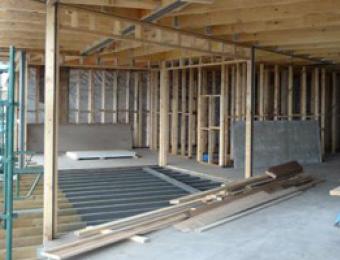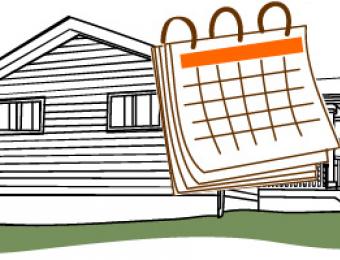What is a mortgage?

A mortgage is a type of loan used to buy property.
In the simplest terms, a mortgage is a type of loan that’s used to buy property. More technically speaking, a mortgage is a contract under which the mortgagor (i.e. the person buying the property) offers up the property as security for a loan provided by the mortgagee (typically a bank or similar lender).
The amount of the mortgage – plus interest and fees – is paid back in installments over a prearranged timeframe, which can be anywhere from several years to several decades.
What is a construction loan?
A construction loan is a type of mortgage that’s specifically designed for people wanting to do construction – this can include building a house, putting up an extension or doing significant renovations. The idea behind a construction loan is that you draw down the loan in stages as the funds are required to pay for your construction. The size of your repayments increases as your construction progresses and your loan gets bigger.
The advantage of a construction loan is that you’re only paying interest on the amount you’re drawing down – so you won’t be paying as much interest at the beginning of the loan. Any money you’ve got to begin with (say you have $50,000 in equity) will normally be put towards construction before you start drawing money on your loan, to further help avoid interest.
Once construction’s complete, a construction loan will normally become a conventional mortgage.
Who owns the property?
The difference between a mortgage and other types of loans is that the lender (i.e. the mortgagee) retains the deed for the property as security of payment until the person buying the house (the mortgagor) repays the mortgage in full.
Under the terms of most mortgages, you’re entitled to occupy the property from the settlement date onwards, and for most intents and purposes you’re the legal owner of the property.
If you don’t deliver your repayments within the timeframe agreed in the contract though, the mortgagee or lender has the right to repossess your property and sell it off to cover the outstanding debt.
How is interest calculated on a mortgage?
In repaying the debt, you will pay monthly installments both to reduce the overall amount owed from the original loan (called the ‘principal’) of the mortgage – as well as interest on top of that figure, which is usually calculated daily.
If the mortgage is being used to buy an investment property, the mortgage may be set up as an interest-only loan where the principal is not paid down until the property’s sold. This is a common set up to help maximise tax benefits.







